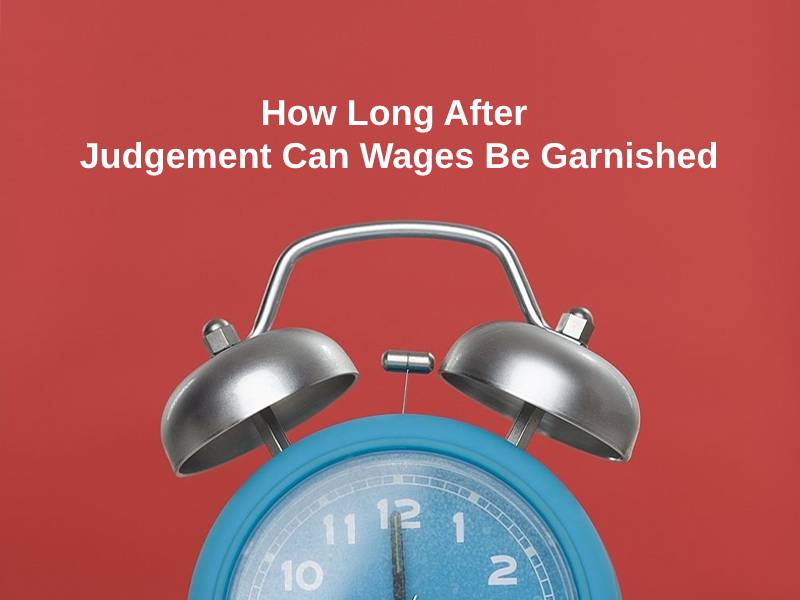Exact Answer: Debts Due For At Least 6 Months
The garnishment of wages is a process by which the creditors of a person can garnish a certain amount from the borrower’s paycheck. Such a process sets into motion on the orders of the judiciary or government authorities like the IRS. The employer of the creditor is legally required to hold back the amount as decided by the court or authority.
The order establishing the decision of garnishment is called the Notice of Garnishment. The amount garnished from the wage is not handed over to the person in any form but is deducted at the source. Such a process continues till the debt is met or the objective of garnishment is attained.

How Long Before A Creditor Can Garnish Wages?
Wage garnishment might not be a great experience for the employee, especially if they are going through financial turmoil. It is sure to cause great turbulence in the life of the person and the person may better be prepared to overcome such obstacles. Therefore an employee should be prepared to face such a situation and its consequences.
Generally, when a person has their debts due for more than or at least 6 months, they should prepare themselves for wage garnishment. Moreover, a person going through family issues like divorce and child custody, and separation are at risk of wage garnishment. Wage garnishment may be ordered by the court for paying alimony to the ex-spouse and for paying child support. In addition to these, cases like not paying taxes and student loans also may lead to wage garnishment.
There are different periods after which the court or any competent government authority can order wage garnishment to the employer of the employee. These authorities also dictate the employer send the garnished wage amount to any particular person or account.
In the case of judicial pronouncements, wage garnishment is ordered after a court case of up to a year. The same stands for child assistance and alimony while the order for wage garnishment on account of non-payment of student loans or tax dues can be made after they are due for more than 6 months.
| Cause for Wage Garnishment | Timeline |
| Judicial Orders By A Court Of Law | A year |
| Child Assistance and Alimony | A year |
| Unpaid Student Loans | 6 months |
| Unpaid Taxes | 6 months |
Why Can A Creditor Garnish Wages After So Long?
A creditor can garnish wages only when the borrower fails to repay repeatedly on time. In such a case, the creditor can opt for legal remedies available to them through several governmental regulations. These legal routes take time and so the creditor can garnish wages after that long.
The court of law takes time in passing judicial decisions as its petition is filed, notices issued to parties, then it listens to arguments and counter-arguments before passing judgments. This is a time-consuming process and a creditor cannot garnish wages before this time. Judicial judgments for wage garnishment can be pronounced in the case of unpaid debts and other similar financial matters.
Cases regarding child support and alimony to an ex-spouse after divorce also take nearly a year. These are complicated matters and their hearing takes time. Courts ask them for mutual settlement and this entire process needs time.
Unpaid student loans of the employee also become collective by the Department of Education if they are not paid within their stipulated time frames for 6 consecutive months. The same stands for taxes and the IRS can send the notice of garnishment to the employer if their employee fails to pay his taxes on time. The IRS can collect it after sending a notice to the person 30 days before the beginning of the garnishment process.
Conclusion
Wage garnishment is the legal system most common in the United States Of America. This system empowers a creditor to ask the employer of their borrower to garnish the borrower’s wages. Garnishing wage means setting aside a certain amount of money from the borrower’s wage and giving it to the creditor to pay the debts owed.
Garnishment of wages can be done in matters of judicial orders, child assistance, and alimony after being ordered so by the court. Moreover, the US Department of Education and the IRS can call for wage garnishment in cases of student loans and taxes respectively.




















